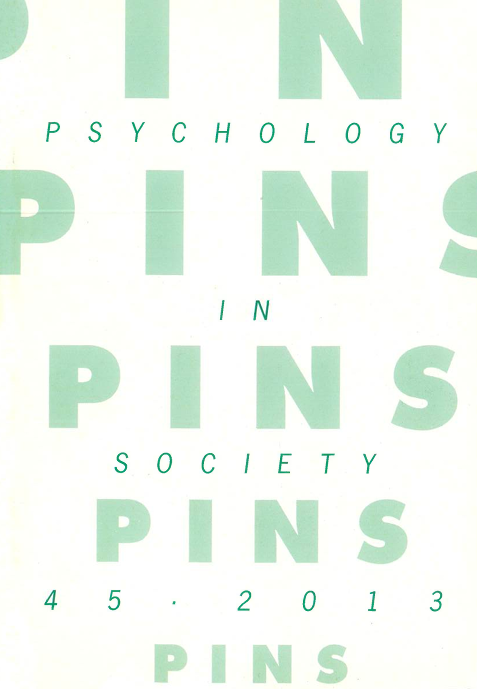BEYOND THE ESSENTIALISM OF GROUPS: CHALLENGING COMMON SENSE IN THE EQUALITY MOVEMENT
DOI:
https://doi.org/10.17159//2309-8708/2013/n45a9Abstract
Dalal, Farhad (2012) Thought paralysis: The virtues of discrimination. London: Karnac Books. ISBN 978 1780490526 pbk. Pages xi + 264.
Challenging title this one: “thought paralysis”, and then making a “virtue of discrimination”. Farhad Dalal - a psychotherapist, group analyst, facilitator and
consultant - divides the 13 chapters of the book into two halves: “If the first half of the book is loosely thought of as having to do with ‘ideas’”, the focus of the second half is (equally loosely) on “practice” (p 22). Chapters one and two respectively introduce the issues and provide an overview of “the philosophy of liberalism” (especially in regard to perceptions of “difference” – the individual and/versus the group – one of the first links to the South African problematic for this reader/reviewer). Chapter three, again directly pertinent to local debates, deals with the role of legislature and legislation (the focus is
on Britain), “making aspects of the situation worse” despite intentions to the contrary: “One reason … is that the legislature begins by taking it for granted that the ‘kinds’ of people just exist as eternal facts of nature” (p 21). In chapters four and five the “ideas are developed” that are essential to and which “form the basis of the critiques that follow” (p 21). Relying on “psychoanalytic and group analytic understandings of the human condition” is critically developed to “dismantle the naïve understandings of the cultural groups and the individual found in the equality movements” (those that act against a wide range of inequalities and discriminations – race, gender, sexuality, etc).
Downloads
Downloads
Published
How to Cite
Issue
Section
License
This journal is an open access journal, and the authors' and journal should be properly acknowledged, when works are cited.
Authors may use the publishers version for teaching purposes, in books, theses, dissertations, conferences and conference papers.
A copy of the authors’ publishers version may also be hosted on the following websites:
- Non-commercial personal homepage or blog.
- Institutional webpage.
- Authors Institutional Repository.
The following notice should accompany such a posting on the website: “This is an electronic version of an article published in PINS, Volume XXX, number XXX, pages XXX–XXX”, DOI. Authors should also supply a hyperlink to the original paper or indicate where the original paper (http://www.journals.ac.za/index.php/pins) may be found.
Authors publishers version, affiliated with the Stellenbosch University will be automatically deposited in the University’s’ Institutional Repository SUNScholar.
Articles as a whole, may not be re-published with another journal.
The copyright of the article(s) lies with the author(s).
The copyright of the journal lies with PINS-psychology in Society.
The following license applies:
Attribution CC BY-NC-ND 4.0 - https://creativecommons.org/licenses/by-nc-nd/4.0/

